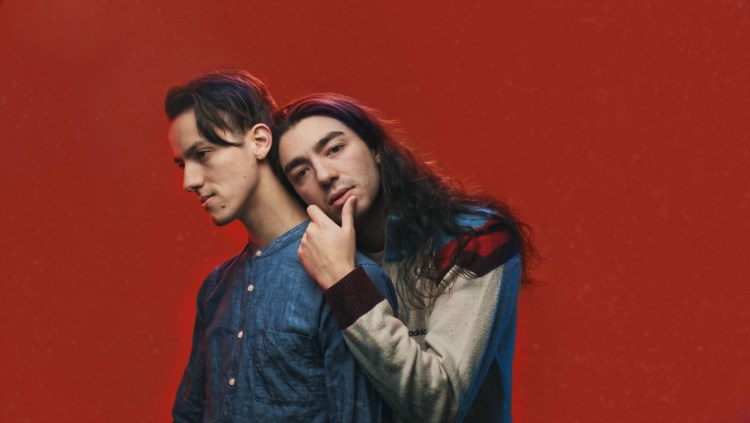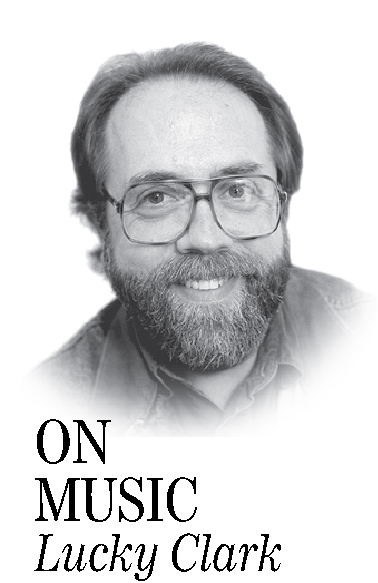In this continuing dearth of live concerts courtesy of this pandemic it is encouraging to find some good coming out of the chaos that is our new normal … such is the case with today’s column. I first talked with Sean Oshima back in June of 2017 right after he and his brother, Jamie, released their first album. The 11 songs on that self-titled CD really pushed all the right musical buttons for me, so I decided to reconnect with this young, gentle man to see how the brothers are holding up during this troubling time — and I was amazed at what I discovered. I reached out to him at his coastal Maine home on the 1st of July and here’s what came down.
Q: I have your self-titled debut album, but when I was going through your website I noticed a release titled “Under The Same Stars” — what’s the story about that?
Oshima: “Under The Same Stars” is an EP of music — five songs — that we released in May of 2019, and since it came out it has been really transformative for us. We released music videos with each track off the EP, and each one of them tells its own story. Those music videos and the songs have helped us reach a lot of new people. The EP has garnered over 2 million streams on Spotify, and it’s been so nice to connect with people through the music.
Q: Now, when setting up this interview, you said you guys were working on something, can you fill me in on that project?
Oshima: Our exciting news is that on July 10 we will release a brand new EP of six songs that are recordings we made this year — in 2020 — mostly. It features four singles that we’ve released this past year and two new songs. … It’ll come out in CD form and online on all streaming platforms; it’s called “Sunset Red” (oshimabrothers.com/music).
Q: So, what is the writing process like for you guys nowadays?
Oshima: We’ve been writing together a lot this spring, and we write on all the instruments in the house — on keyboards, on guitars — we use every avenue we can to create songs. I often start the songs with a song seed and kind of get the basic idea down on paper or recorded. Then I bring in my brother and we hash out the rest of the song together and really help it bloom into what we imagined it being. Often a song will be finished in a week and sometimes they take years to write, so it’s an interesting and unique process to each song. And with the new EP, the songs are specifically about summer, the beauty of the world we live in here in Maine — the ocean, the sunset, the trees, and how clearly we can see the sky — and also about loneliness and distance and love, ultimately.
Q: It sounds like the forced pause on touring and live performances has been successfully channeled into heightened creativity.
Oshima: As everyone has had to adapt and learn how to deal with the new situation, we’ve taken that route. … It’s had its ups and downs but ultimately we’re finding it a really rewarding time for growth and challenging ourselves to be the kind of musicians and artists we really want to be. It’s not always easy. Sometimes being an artist is incredibly challenging — the ebb and flow of art.
Q: Speaking of this “new situation,” how are you and Jamie weathering the COVID-19 storm?
Oshima: We have been finding this new phase of life to be rewarding and exciting, and also a bit sad — everything all at once, I would say. We have been performing virtual concerts from March to May; we performed livestream concerts in a series that we called “Singstream,” there were 10 episodes. It was important to us to perform and connect with our fans in this time of social distancing. It was a lot of work, each livestream went live on Facebook and ran about 30 or 40 minutes. … Those shows reached a lot of people; they can be still seen there (facebook.com/oshimabrothers/live). But they did require a lot of work to make the sound and the video to the quality that we wanted.
Q: Can you talk a little more about this “Singstream” project?
Oshima: Each video in the series features some original songs, perhaps a cover and often a lot of shenanigans, and hopefully some laughs and warmth, as well.
Q: Will you be doing any more livestreamed shows in the weeks and months to come?
Oshima: We’ll be performing more livestreaming in August, … and we’re looking forward to that.
Q: Has this new normal impacted you in other ways?
Oshima: We’ve also used this time as a period of introspection. … We’ve been working nonstop on our music and art, and that has really been a gift — this time has been an incredibly artistic time for us.
Q: It sounds like that’s your silver-lining to this.
Oshima: (Chuckle) It is, indeed, the word to be used!
Q: I think it’s safe for me to assume that you and Jamie are anxious to get back on the road and doing in-person concerts.
Oshima: We are very excited for when we can get out on the road again. I personally miss looking people in the eye, and I miss applause. That’s a guilty admission on my part (chuckle). But for now we are also excited to have new music that people can listen to on a streaming platform or on a CD.
Q: Now, you are referring to your “Sunset Red” EP and I was wondering if the song “Lost At Sea” was on there — you sent me a link to the video (youtube.com/watch?v=gImgfb6MyPs) that features you and Jamie in the ocean without the benefit of any floatation device … and filming that looked very damp, not to mention dangerous.
Oshima: It was filmed on the coast of Maine — on land and also in the water. It’s kind of a visual representation of the audio quality of the song. It feels like being tossed around in the waves and the music video is very much that. Some of the video was filmed on an iPhone in a Mason jar underwater.
Q: Good grief, man — the things you guys do for art!
Oshima: (Laughter)
Q: Is there anything, Sean, that you’d like me to pass on to the folks reading this article?
Oshima: Yeah, “If you’re reading this, we’d love to connect with you on social media so that someday we could perhaps meet in person at a show when COVID-19 has moved on. We encourage you to listen to our new EP, educate yourself about this world that we’re living in — the changing climate, for example — and we also encourage you to support Black and indigenous people of color, especially here in Maine, if you are able.” (www.oshimabrothers.com)
Lucky Clark has spent over 50 years writing about good music and the people who make it. He can be reached at luckyc@myfairpoint.net if you have any questions, comments or suggestions.
Copy the Story LinkComments are not available on this story.
Send questions/comments to the editors.



